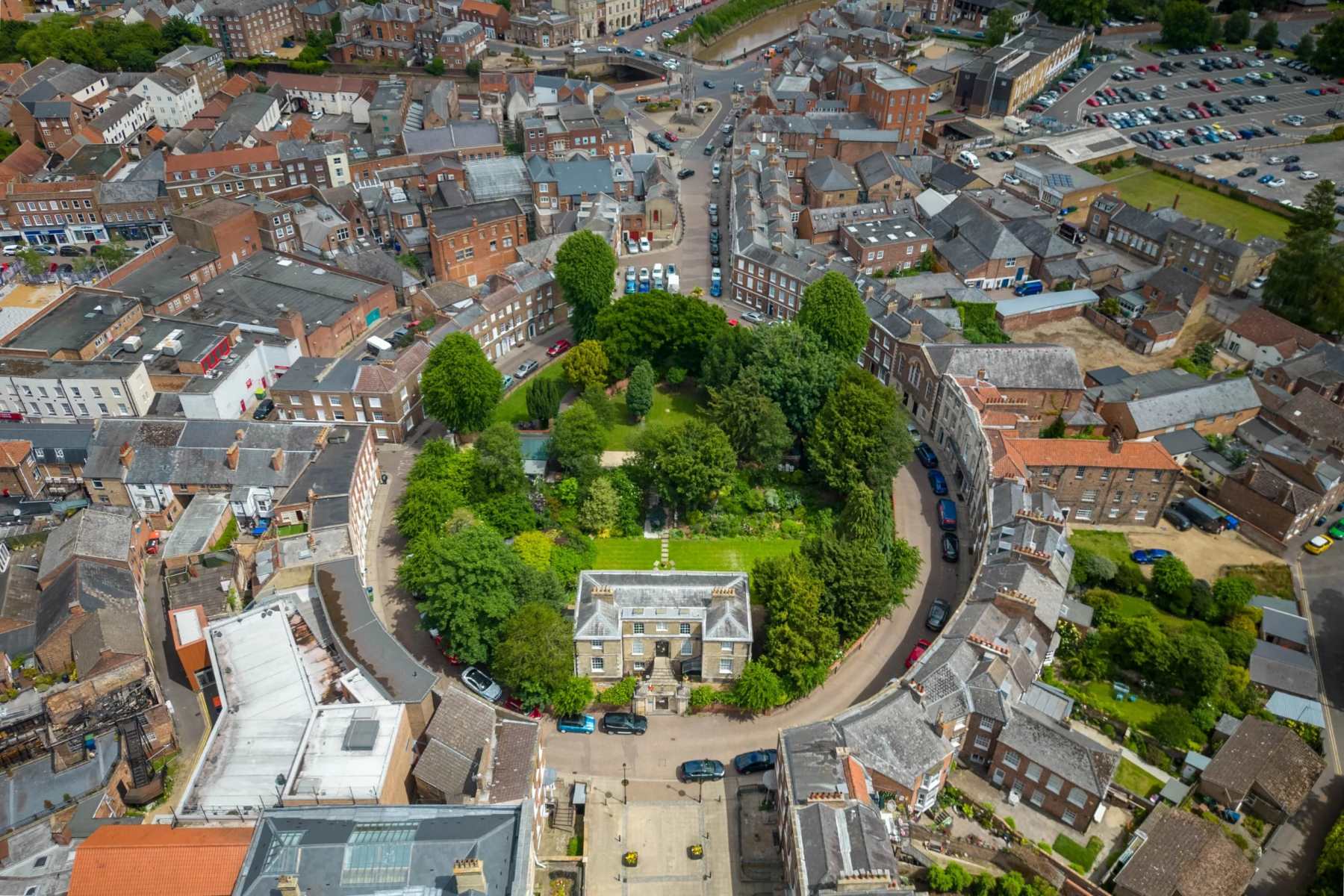
What makes Wisbech a town worth knowing about? Wisbech, a market town in Cambridgeshire, England, boasts a rich history and vibrant culture. Nestled on the River Nene, it has been a significant trade hub for centuries. Known for its market-gardening industry and historical landmarks, Wisbech offers a glimpse into England's past. The town's Georgian theatre, Angles Theatre, and notable figures like Rev. William Ellis add to its cultural tapestry. However, Wisbech faces modern challenges, including underinvestment, healthcare issues, and educational needs. Despite these hurdles, its unique blend of history and culture makes Wisbech a fascinating place to explore.
Key Takeaways:
- Wisbech, a historic market town in England, has a rich cultural heritage and faced economic challenges. Its diverse population and transportation issues impact its connectivity and opportunities.
- Despite its rich history, Wisbech faces modern challenges, including underinvestment, demographic diversity, and transportation issues. These factors impact the town's economy, education, and healthcare services.
Historical Background of Wisbech
Wisbech, a market town in Cambridgeshire, England, boasts a rich history dating back centuries. Its strategic location on the River Nene has made it a significant hub for trade and commerce.
- Wisbech was originally divided into three 'watches': Town and South Brink (Wisbech St. Peter) and Murrow or North Brink (Wisbech St. Mary).
- By the 16th century, Wisbech had become a corporate town, with a steadily growing population.
- The town emerged as a major market-gardening area in England, contributing significantly to its growth.
- The 1931 Census recorded a population of 12,006 within the then-existing area.
- Samuel Pepys noted Wisbech's fine church and library in 1663.
Geography and Location
Wisbech's geographical position has played a crucial role in its development. Nestled on the River Nene, it is well-connected to other significant locations.
- Wisbech is approximately 94 miles north of London and 40 miles from Cambridge by road.
- The town is part of a series of settlements spaced at two- to three-mile intervals along the landward side of the 'Roman Bank.'
- The River Nene has been central to Wisbech's history and development.
Economic History
Wisbech's economy has been shaped by its agricultural and industrial sectors. The town's market-gardening industry was once renowned for its high-quality produce.
- Wisbech's market-gardening industry was famous for its high-quality produce.
- The development of fruit canning and other ancillary industries further boosted the local economy.
- The town has faced significant economic challenges in recent years, including sustained underinvestment.
- High levels of deprivation have impacted the town's economic stability.
Cultural Significance
Wisbech has a rich cultural heritage, with numerous historical landmarks and notable figures contributing to its identity.
- The Georgian theatre, now known as the Angles Theatre, has been a hub for cultural activities and performances.
- Rev. William Ellis, a pioneer photographer and missionary, was born in Wisbech.
- Samuel Smith, known as 'Philosopher Smith,' recorded the development of the town through his photographs in the 1850s and 1860s.
- The collections of Samuel Smith's photographs can be seen in the Science Museum, London, and the Wisbech & Fenland Museum.
Notable Figures and Events
Wisbech has been home to several notable figures who have made significant contributions to various fields. The town has also witnessed significant historical events.
- Rev. William Ellis authored several influential books, including History of Madagascar and Polynesian Researches.
- In 1913, civil unrest followed the death of Doctor Horace Dimock, leading to the reading of the Riot Act by the mayor.
- The Wisbech Canal was filled in and converted into a dual carriageway following the 1913 unrest.
Twentieth Century Developments
The 20th century saw several significant developments in Wisbech, marking major improvements in the town's infrastructure and community life.
- In 1904, the borough council contracted with the National Electric Construction Company Ltd for the installation of electric street lighting.
- The Wisbech War Memorial was unveiled on 24 July 1921, honoring the town's contributions to World War I.
- The Wisbech Pageant in 1929 attracted an estimated attendance of over 25,000 people.
Modern Challenges
Despite its rich history and cultural significance, Wisbech faces numerous challenges in the modern era.
- The town has experienced sustained underinvestment, leading to increased levels of deprivation.
- Low-skill, low-paid employment is prevalent in Wisbech.
- Only a third of students meet national standards for Key Stage 2 English and Maths.
- Healthcare services in Wisbech are under strain, with life expectancy three years less than in Cambridge.
- Rates of emergency admissions for heart disease, heart attacks, and Chronic Obstructive Pulmonary Disease (COPD) are significantly higher than national averages.
- Cancer incidence rates are above the national average, and premature mortality rates are higher than in England as a whole.
- Obtaining doctor's appointments is difficult, with one practice handling 20,151 patients, twice the national average.
Demographic Challenges
Wisbech has a diverse population, but this also presents unique challenges, particularly in education and integration.
- The town has a disproportionately high number of immigrants, primarily from Eastern Europe.
- Up to 50% of pupils in Wisbech primary and infant schools do not have English as their first language.
- 35% of people in Wisbech have no formal qualifications, twice as many as the rest of Cambridgeshire.
Transportation Issues
Wisbech's transportation infrastructure has been a significant challenge, impacting the town's connectivity and economic opportunities.
- Wisbech is one of the largest towns in England not connected to the rail network.
- Despite being only 40 miles away from Cambridge, the town lacks reliable rail transport links.
- Underinvestment in road infrastructure has left the population increasingly cut off from economic and social networks.
Additional Facts
Here are some more intriguing facts about Wisbech that highlight its unique character and challenges.
- In 2011, Wisbech had a population of 31,573.
- The town's fine church and library were noted by Samuel Pepys in 1663.
- Wisbech has a significant photography heritage, with pioneers like Rev. William Ellis and Samuel Smith contributing to its history.
- The town has hosted several notable events, including The Wisbech Pageant in 1929 and the 400th anniversary pageant in 1949.
- The lack of rail transport links and underinvestment in road infrastructure have significantly impacted the town's connectivity.
Wisbech's Future Needs Attention
Wisbech, with its rich history and cultural significance, faces modern challenges that can't be ignored. The town's economic struggles, healthcare issues, and educational gaps highlight the urgent need for investment and support. High levels of deprivation and underinvestment have left the town grappling with low-skill, low-paid jobs and strained healthcare services. The lack of rail transport and poor road infrastructure further isolate the community.
Despite these hurdles, Wisbech's historical landmarks and cultural heritage offer a foundation for potential growth. Addressing the town's needs requires a concerted effort to improve education, healthcare, and transportation. With the right focus and investment, Wisbech can redefine itself and provide a better future for its residents. The call for someone to champion Wisbech is not just a plea but a necessity for its revival.
Frequently Asked Questions
Was this page helpful?
Our commitment to delivering trustworthy and engaging content is at the heart of what we do. Each fact on our site is contributed by real users like you, bringing a wealth of diverse insights and information. To ensure the highest standards of accuracy and reliability, our dedicated editors meticulously review each submission. This process guarantees that the facts we share are not only fascinating but also credible. Trust in our commitment to quality and authenticity as you explore and learn with us.


